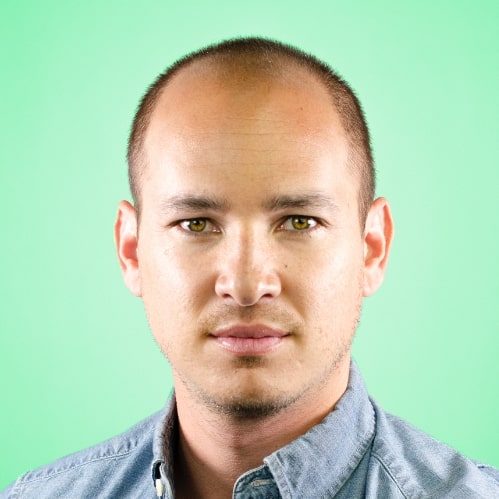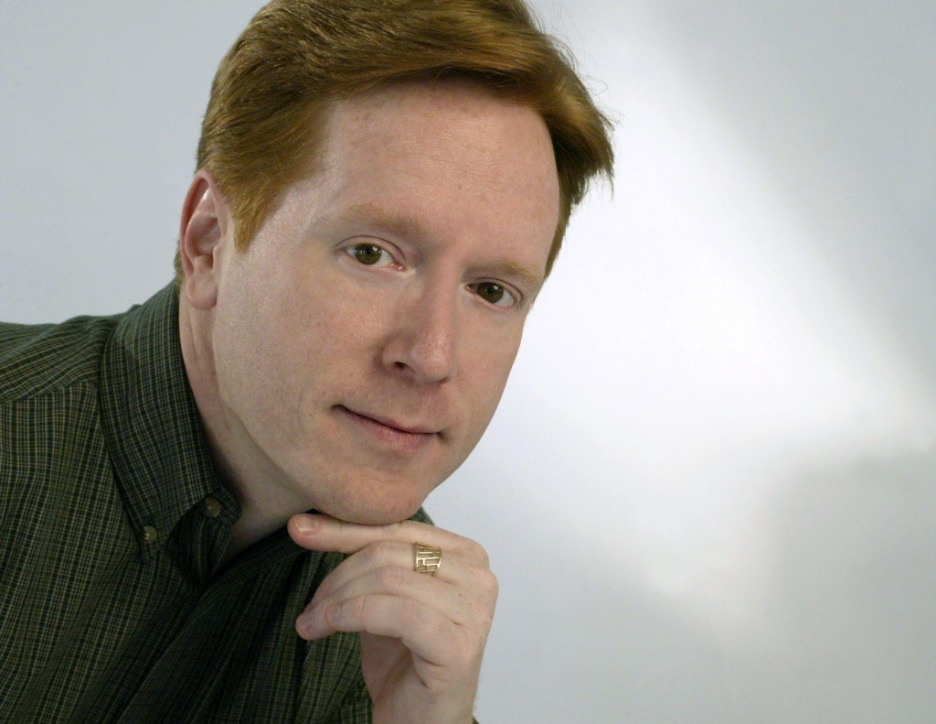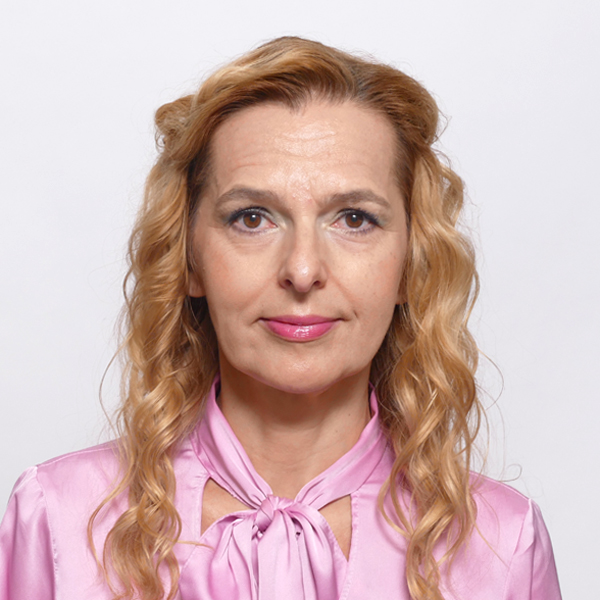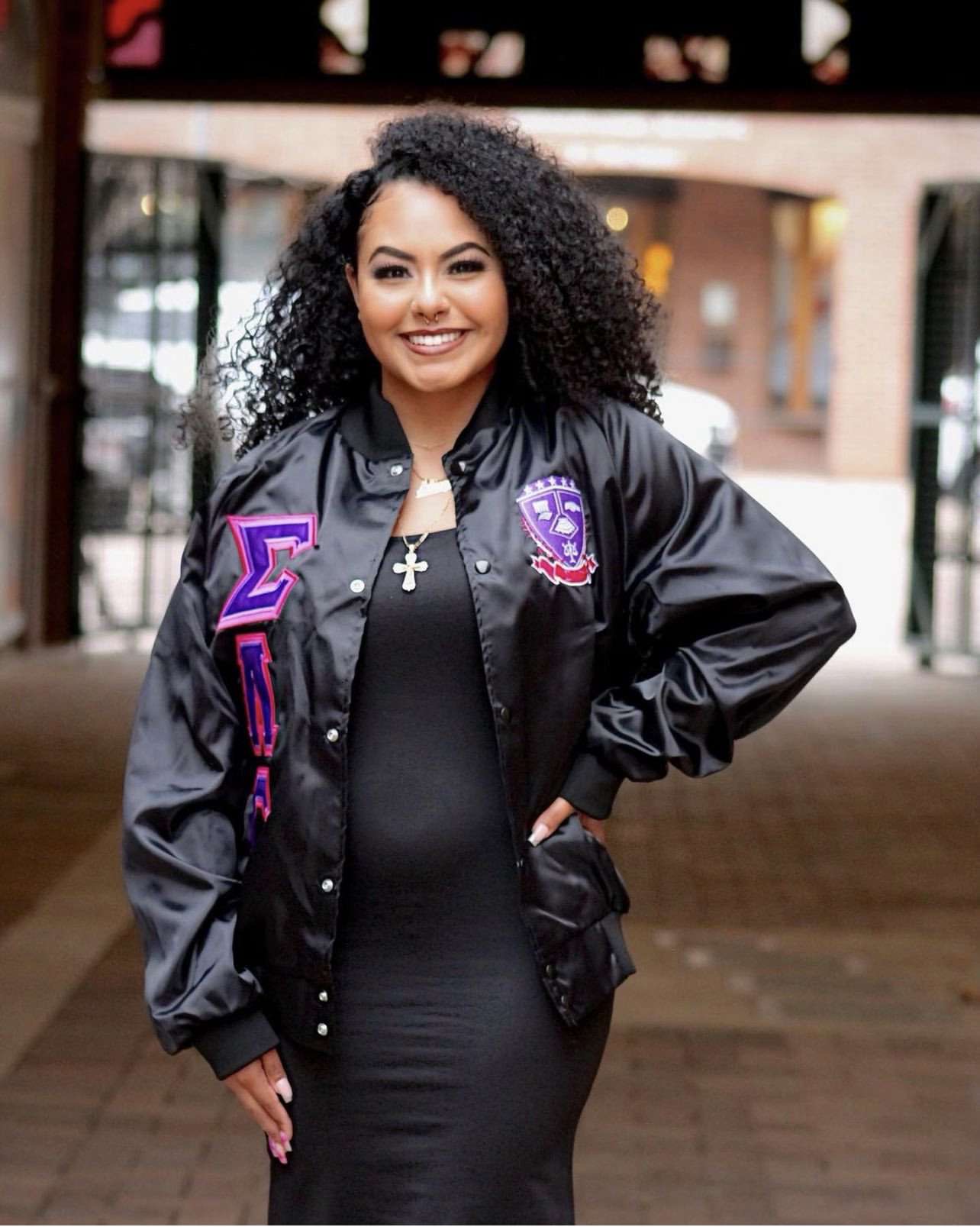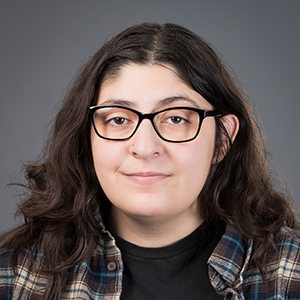
Zvi Gutierrez is a senior journalism student at UNC. She has been chosen among many other competitors, to become a Producer in Residence at 9News Denver, and it's the first UNC student to get that position. Gutierrez talks to Katie, our host for this season, about the application process, the implications of the position, and about learning to be a good journalist. (Running time 13:06)
Transcript:
Katie: Hi everyone. Welcome back to this week's episode of Bear in Mind Podcast. I'm your host, Katie Nord. Let's get started.
Katie: Breaking news! Senior journalism student at UNC has been selected for the prestigious title of Producer in Residence with 9News Denver. Tune in to our broadcast to learn more about this story.
Katie: It's a part of life to be curious, and we always want to be up to date with current events, especially when they're impactful to your daily life. That's why we have news channels to keep us informed on current events, whether it be global stories or a small scale topic. Journalism is the backbone of mass communication, and as a journalism student myself, I invited the lovely Zvi Gutierrez to join me in the studio today to tell us all about her wonderful opportunity with 9News. Thanks for taking the time to be here today.
Zvi: Thank you for having me.
Katie: So to start off, I'll just have you introduce yourself real quick. You can tell us what year you're in at UNC, your major, anything else you'd like us to know about you. Go ham!
Zvi: My name is Zvi. I am a journalism and media studies major, and I have two minors, one in photography and the other in criminal justice. And I am a senior this year. This is actually my third major.
Katie: Really?
Zvi: Yeah.
Katie: Three? Wait. You have three majors?
Zvi: No, this is my third major.
Katie: Oh, like you've changed it three times.
Zvi: Yeah.
Katie: Oh my gosh, I thought you meant your your triple majoring. That's crazy. Okay. How'd you first get into journalism if that wasn't your first choice.
Zvi: So during my freshman year, I realized I just didn't like the art program at UNC that much and I didn't like doing art in college. So I switched to, what was it? Forensic science for a semester. And then I realized I hated chemistry. It was just too hard for me to grasp at the time, and I was like, I don't have the motivation to do this. And so during one of our breaks, I think it was Thanksgiving break. My sophomore year, I actually watched a documentary about Britney Spears, and I decided to switch to journalism.
Katie: So a Britney Spears documentary is what turned it for you?
Zvi: Yeah, because I was like, I can like, interview people that I find interesting. I can combine it with art a little bit with graphic design, because that's what I was originally doing my freshman year. I can combine it all into one, into journalism. So that's how I got into journalism was by Britney Spears documentary.
Katie: Oh my God, that's wild. She said, hit me baby, one more time. And you said, wow, I should be a journalist.
Zvi: Yeah, basically, because it was after everything that she was free finally. And so yeah.
Katie: After you found out that you wanted to take part in journalism, what part of journalism and the media process do you find the most fun?
Zvi: I think the part I find the most fun is interviewing people. Sometimes I don't have the best questions, but it's fun to get to know people and like what they do. I also like the broadcast side of things. So for like Bear News, I do the technical directing stuff and I like pushing the buttons even though it's stressful and not everything is on time, you know, that's so fair.
Katie: You get to learn a lot about people that you wouldn't have known otherwise. When you're interviewing them, you get to learn their secrets, their deep, darkest secrets.
Zvi: Yeah. Honestly, I would say for one of the people I interviewed, they're like, I've never been interviewed. So I'm just gonna, like, tell you everything that I have to say about this. And I was like, okay, go ahead.
Katie: I'm gonna spill my guts by the way. What happens in the studio stays in the studio. There's a lot of behind the scenes stuff that is always really interesting, especially interviewing people you've never met before. It's always interesting to find out what they want to say and what they choose not to say, it's really cool.
Zvi: Yeah, and you also get to learn about things that you didn't even know existed.
Katie: Exactly.
Zvi: A lot of the events on UNC I didn't know existed until I got into the journalism program.
Katie: Yeah, that's the best part about interviewing and doing news in general, is I get to find out about a bunch of stuff that I've never heard of before. I learned about opera, I learned about AI. That's a whole bunch of stuff I would have never even done research on. So we're interviewing you today because you were offered an opportunity with channel 9 news to become a producer in residence. So could you tell me how you learned about the opportunity?
Zvi: So I first learned about the opportunity last school year. During my junior year year. Shawn, for video productio, He had Noah Cooper, who does the producer in residence program, he came and talked to us via Zoom about opportunities at Tekna, which is the parent company of 9News, and I didn't really think much of it. And then senior year came and he came in person to our media management class with Shawn's wife and another producer in residence for this year, and they talked about the program a little bit and just other opportunities. And so I decided, why not?
Katie: You said, might as well.
Zvi: Yeah, basically.
Katie: But you've got the talent to do it. And I mean, that's why you got chosen. You were just that good.
Zvi: I hope so.
Katie: What was the application process like? Were there any unexpected challenges you faced or anything kind of confusing about it?
Zvi: I would say the application process was kind of laid back because when we first entered our email to whatever QR code he provided, I didn't really think of it much. And I was like, he's not going to reach back out, he's going to be a while. But he did, and he was like, we're interested in you. So we did the initial interview thing, just talking about what a producer and residence is and what I would be doing. Other positions that could be available if I didn't get produced in residence. And so we talked about that. After that, we scheduled a writing assessment. He just emailed me some questions and I had to like stack a show. So basically just having stories in a certain order, how I deemed fit and writing a tiny story, also completing sentences and grammar and stuff like that.
Katie: You know, that's what would have gotten me. I would have failed immediately after a grammar test.
Zvi: Yeah, I would say the grammar portion. I think I only got one out of three.
Katie: Oh, no.
Zvi: So it still worked out.
Katie: Yeah. They still picked you.
Zvi: He was like, after this, we'll give you a call in two weeks.
Katie: That's so cool, though. I feel like those two weeks would have been really stressful, though. It's always the waiting period that sucks the most. Yeah, since it was such a selective process, how did you feel when you found out you were picked?
Zvi: I was honestly kind of shocked. They said that they only had one spot for Denver this year, so I had to list four other towns or places that I was like, that would be fine to work at, you know? So I think one was Arizona, Maine, Saint Louis and I think Oregon, something like that. And so when he called me, Immediately he was like, oh, you got the position in Denver. I was just kind of shocked. I didn't know what to say. I kind of was speechless.
Katie: You would have been willing to go to a different state. That is commitment.
Zvi: Yeah, I would say I just why not? Because I've been in Greeley my entire life. So I was like, let's do something new.
Katie: Oh my gosh. Yeah, that is crazy. Would you have been moving by yourself too?
Zvi: I would have probably been moving with my partner, but the hard part would be moving with my pets.
Katie: Oh yeah, traveling with pets is hard. Been there, done that. Since you have the job already, do you know what positions you'll be doing or how they separate that?
Zvi: Yeah. So it's divided into like two portions. So one is the broadcast side and the other is the digital side. So for the broadcast I'll probably just shadow people and learn the process that they do there. Because I've learned they're more serious newsroom than other newsrooms in Tekna's network. So I'll learn how to be professional and stuff like that. And then for the digital side, I'll probably do stories, probably interview a couple people and post stuff.
Katie: Do you have a preference being on air or behind the scenes?
Zvi: Definitely behind the scenes. I'm not very good in front of a camera. I would say I never have been since high school and since basically elementary school. I've liked being behind the scenes on basically everything. I don't like being in the forefront or on stage.
Katie: No, I get that. And that's why they always say, Katie, you've got a face for radio. I say, oh my gosh, thanks guys. I have a face for a podcast too. It's cool to think that people can't see my face when I record, so they get their own image of what I may look like, or I'm just a voice in a blob. You know? I prefer the blob, but it's cool. And there's a lot of work that goes behind the scenes with news and with podcasts and radio. So it's interesting to do all that work and get the recognition, but not have to be on air on camera most of the time.
Zvi: Yeah, I would say the only time you will see me on camera is if I do a stand up, but I hope to never do those because I do not like them.
Katie: You know, that's so fair.
Zvi: Yeah, I would say people hear my voice sometimes for voiceovers and VO-SOT's, but other than that, they don't know my face.
Katie: No, exactly. I would like to remain mysterious. I think that's really cool. Do you have a preference to whether you want to do media or broadcast?
Zvi: Honestly, either one, wherever it takes me to be honest, I think broadcast would probably be easier to get in since there is so many like broadcast networks, even just in Colorado, because I think in Denver there's at least three major ones. And then across the state there is tiny like one in Grand Junction. There's some in Colorado Springs. We used to have one up here in Greeley that did Fort Collins, Loveland and Greeley, stuff like that. There's a lot of opportunities and obviously there's like still print journalism, but it's kind of harder to get into.
Katie: Print journalism is also really intimidating from the experience I have.
Zvi: Yeah, I would say I think broadcast journalism is actually more intimidating to me.
Katie: Oh yeah.
Zvi: But my background is basically in print journalism because that's basically all I've done.
Katie: Yeah. I mean, you have a lot of experience with the journalism program here at UNC. You get a lot of hands on practice. You have a lot of experience from what you've done. I've seen you work and it's really cool.
Zvi: Well thank you. Yeah. The program here is actually pretty good. I don't know what we're ranked, but we should probably be ranked higher if I'm being honest. Even with only us having three professors and sometimes a fourth if Dr. E substitutes in. We do learn a lot, and Shawn does teach us a lot about broadcast and how to be professional and how to be storytellers and just be well-rounded people.
Katie: Yeah. For any students who have not been to the studio before, or maybe want to be a journalism major in the future, we have a whole studio where we record Bear News, and there's TVs plastered everywhere. There's green screens, there's cameras laid out to the nines. It's really impressive, and you get a lot of practical, hands on experience that will help you get a foot in the door when you're looking for jobs. It's really impressive.
Zvi: Yeah. And then since our program is so small, we get to basically do whatever we want.
Katie: Yeah.
Zvi: We don't have to ask for permission for a lot of things. If we want to cover a story, we can just do it.
Katie: Exactly. And one of the benefits with a smaller major and a smaller focus is that you have more personal help from professors and other students who really get to know the software and the way to do things. It's really cool.
Zvi: Yeah. Most definitely.
Katie: So how long will you be working at this job?
Zvi: For the producer and residents thing, it lasts two years, lasts up to two years. Within that time you can be promoted at literally any time. So if you're doing a good job, actually doing your job, doing basic stuff, you'll get promoted for wherever they see fit. They were telling me. Probably within a year to a year and a half into the Producer in residence program. I'll get a promotion.
Katie: That's really cool. And could you go basically anywhere in the US to any news station?
Zvi: Yeah, I could. They were telling me that most people stay within the station they originally went to, and I would like to stay there, but if there's like a different job opportunity in a different state with Tekna, I'd probably take that too.
Katie: Yeah, because Tekna is overseeing many different channels and broadcast stuff, right?
Zvi: Yeah, I think they have over or around 50 new stations.
Katie: Wow. Wait, that's actually really cool.
Zvi: Yeah. And then 9News is the only one that they manage in Colorado.
Katie: That must have been why it was so selective with only one position available.
Zvi: Yeah, I would say last year they had three positions for the producer in residence, and they opened up a fourth position for this one girl who was really great. So this year they had to take less people.
Katie: Oh, but hey, I mean, that means you had to be really good. You were the best.
Zvi: I hope so, I hope so.
Katie: The cream of the crop, if you will. Where would you like to see yourself in the future in terms of your journalism career?
Zvi: I would really like to be an investigative journalist eventually.
Katie: Oh, wow. Crime investigation?
Zvi: Yeah.
Katie: That's so cool.
Zvi: Yeah, I watch a lot of true crime documentaries. I want to do that. So that's also part of the reason why I got into journalism is because I can do basically whatever I can tell a story and learning the like, nitty gritty details of crime stories. That's what I'm most passionate about. I can talk about it for hours, probably.
Katie: Wait, do you want to make a documentary like a murder documentary?
Zvi: That would honestly be pretty cool.
Katie: That would be so fun.
Zvi: I would say I like the Major Crimes, but I also want to dig up the smaller crimes that aren't more out there, I guess.
Katie: Yeah. Also, I would love to be the person that solves an unsolved mystery.
Zvi: Oh me too. That would be so cool.
Katie: There was a crime that lived for 40 years and nobody found the murderer. But I found them.
Zvi: Maybe I'll figure out the Zodiac killer.
Katie: Oh my gosh. All right, well, that's so cool. With journalism being so prominent in our lives, it's important that we're aware of the events going on around the world. Everyone who's a part of the journalism program here at UNC is so incredibly proud of Zvi and all the efforts she's put into her work. It's really clear as day, if anyone is curious to check out the UNC Journalism and Media Studies program. Just so you know, you get a ton of hands on experience with news production, video creation, and editing, which is incredibly useful when you're looking for a job in the workforce. Make sure to keep an eye out for any of these future news stories on 9News Denver. I'm confident they're going to be absolutely amazing. You're going to make such a wonderful impact on the journalism community, and I'm so excited to see what you do in the future. Congratulations again and I hope you all had a good time listening to this week's episode of the Bear in Mind podcast. I'm your host, Katie Nord. Signing off. See you soon. Bye!

